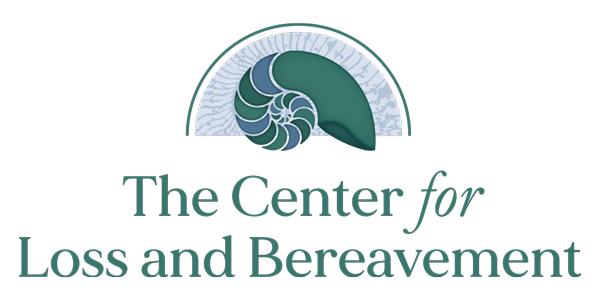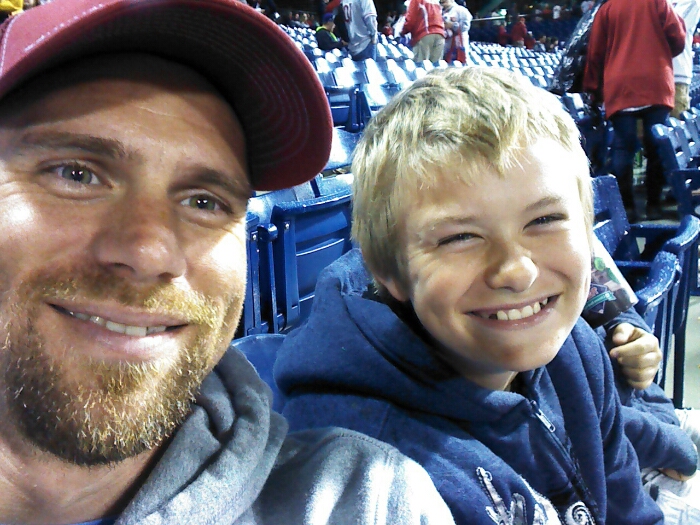In honor of Men’s Mental Health Awareness Month, we sat down with John Walton, a counseling client at The Center. During the interview, John shared his thoughts on grief, therapy, and the stigma around men’s mental health.
In September of 2022, John Walton lost his 19 year-old son Adam to suicide. His death was a crushing blow following a series of hardships, including the death of his mother and his dog. Several months later, John and his wife Britt decided it was time to talk to a therapist about everything they were carrying. “There is so much pain, anger, disappointment, frustration… you can’t find answers, so I think that really was the driving factor. We knew that we were in a situation beyond anything we could manage on our own.” They learned about The Center for Loss and Bereavement, completed an intake, and were matched with one of our therapists, Brian McCaffrey. They have now been seeing him for a year and a half.
For John, therapy was not always something he was interested in. “I personally am a convert as it relates to therapy… my family wasn’t close, we were raised with ‘stiff upper lip, just suck it up’… This experience here has been great for us. I mean, it’s grief, so it’s bittersweet no matter how you look at it. But, ultimately, we have gotten so much out of this…” In sessions, they not only process Adam’s death, but also the ripple effect it has had on their friendships, family, school community, and beyond. Therapy has also helped them to cope through this loss as partners. While John and Britt have a strong relationship with open communication, he finds that there are limits to how much they can help each other on their own. Speaking to someone who is trained in grief counseling provides them with the support and comfort they need at an otherwise unstable time. Their sessions have even become something that they look forward to, especially after a particularly difficult week. Some sessions can be very intense and emotional, but for John and Britt, it’s worth it.
An aspect of therapy that John has found particularly helpful is simply speaking out loud what has been in his head. He finds that the narratives we create in our heads can be dangerous. For those who already identify as anxious or depressive, those narratives may skew more toward a negative perspective that may not always be grounded in reality. Talking to a therapist can help you to rationalize your thought process and identify parts of the story that are not serving you. Even on days when it seems like there will be nothing to talk about, John finds that the words just come pouring out once he is in the therapy office. “It’s all there, but it’s not at the forefront of our mind because we’re so used to just being in it.”
Other ways that therapy has helped John is through talking about Adam and learning to practice self-care. John loves talking about his son, and finds that sharing his story in sessions is cathartic in-and-of itself. As for self-care, he believes it is important but sometimes struggles with feeling like it is selfish. Therapy has helped to encourage him to give himself more grace and permission to take care of himself.
While John has come a long way with his relationship to therapy, he acknowledges that stigma around mental health is often a barrier to seeking treatment, especially for men. Societal expectations of what it means to “be a man” or be masculine do not often align with the vulnerability that occurs in therapy. He finds that even the term self-care is often viewed as something that is not “manly” and may make it difficult for men to implement it their lives. John also speaks to the stigma around grief, particularly in the way people tend to invalidate grief based on the length of time a griever knew the person or based on the type of relationship. He believes that “the strength of your relationship is not linear with time.” Each person’s relationship with the person who died and their grief is deeply personal and cannot be measured or compared.
John encourages folks to seek grief counseling to help them create a new perspective on what is now the “new normal.” While grief does not go away, you can find ways to adapt to it. “You just have to be willing to talk about it, and know that sometimes it is going to be uncomfortable. It might hurt and it might be something you struggle with for a while, but the long-term benefit is that you’re going to be better off for addressing that pain.”

